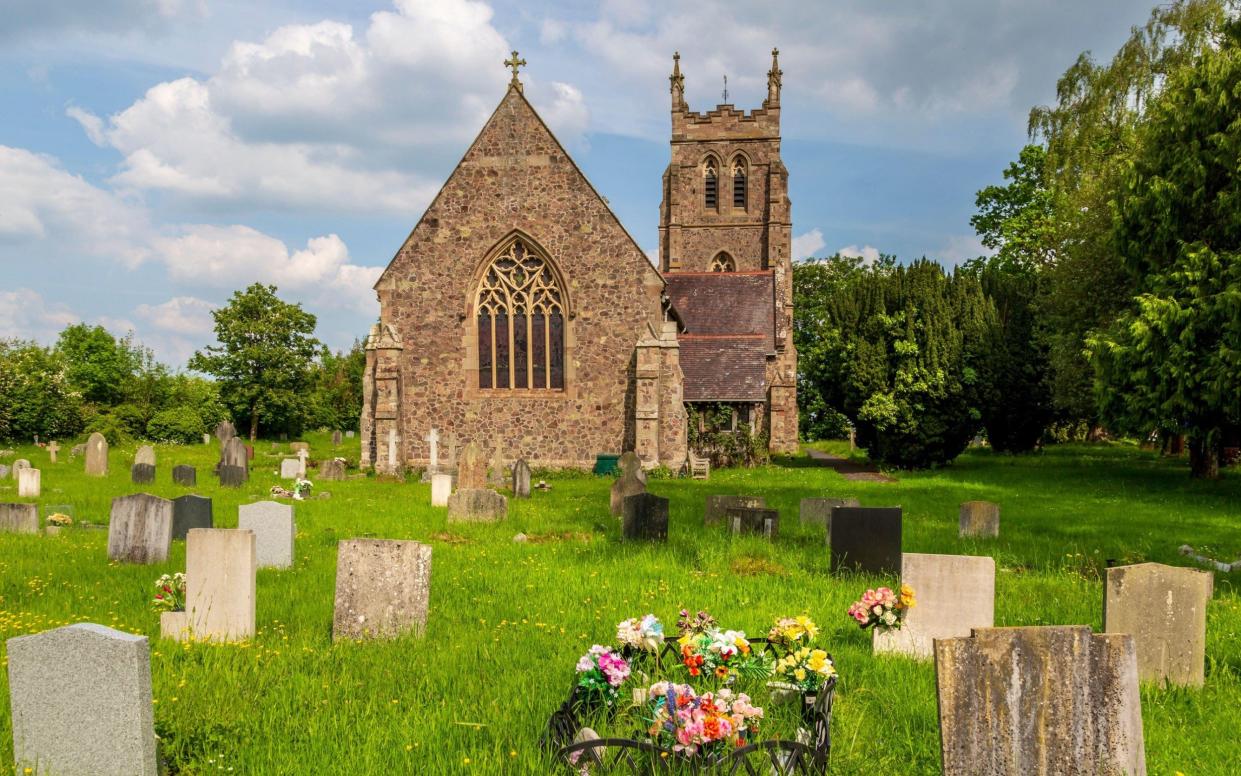Nicknames banned from Second World War memorial because they ‘risk causing offence’

A Church court has banned nicknames from a Second World War memorial because they “risk causing offence to others”.
Details of the case emerged during a Consistory Court ruling in which a parishioner of St Mary de Wyche - a Grade II*-listed church in Droitwich - became aware that his cousin, a fallen Second World War soldier nicknamed Pat, was incorrectly recorded on the church memorial.
The memorial to nine servicemen of Wychbold who died in the 1939-45 conflict, screwed into the lychgate at the historic church and built between 1888-9, currently reads Patrick Collins.
However, local parishioner David Hughes applied to have the plaque replaced at his own cost with “Kenneth L (Pat) Collins”, claiming that his cousin in fact had the legal name Kenneth Lawrence Collins - albeit that he was apparently known by the nickname Pat.
Church legal documents revealed how the War Memorials Trust (WMT) waded into the debate, cautioning “against the change of spellings on war memorials” and claiming “there is a risk that a legitimate name will be altered or removed”.
The WMT also noted that it has records of six men named Patrick Collins who died in the Second World War. It advised against “too readily concluding that ‘Patrick Collins’ on the existing plaque is an error”.
'Allowing nicknames risks creating difficult cases'
However, despite ruling that the memorial should be changed, the Court Chancellor rejected that it should include any form of nickname because “allowing nicknames onto memorials risks creating difficult cases in the future where particular nicknames risk causing offence to others”.
Giving his reasons, the Deputy Chancellor, John Summers, sitting in the Worcester Consistory Court, said: “First, no other names on the existing memorial contain nicknames.
“Second, the introduction of a nickname adds information beyond that which might be expected to be found on the face of a memorial, i.e. the legal name of the person commemorated.
“A war memorial is a public document and the use of legal names is both informative and respectful.”
The Court Chancellor applauded Mr Hughes’s “noble efforts to have his cousin’s name properly recorded on the war memorial”.
Mr Hughes had conducted “extensive research” into his cousin’s life. He provided documentation including a birth certificate, death certificate and an extract of records held by the Commonwealth War Graves Commission.
'Substantial error'
In his conclusions, Mr Summers accepted the WMT’s concerns that names on war memorials “should not be too readily altered”.
However, he said that “there is a strong evidential case” that the soldier with the surname Collins who should be commemorated on the war memorial in Wychbold church is Kenneth Lawrence Collins and not Patrick Collins.
“I consider this to be a substantial error on the face of the memorial and accordingly that there are good prima facie reasons to approve its correction,” he said.
He ruled that the new memorial should bear the name‘ Kenneth L Collins, because it is in the same format as the other names on the memorial.
He added that his ruling was made only on the conditions that a new memorial would be “in the same style” and in the same location as the original one.
A mistake on a war memorial “may prejudice its role in recording and honouring those who fought and died in war”, he said.
He added: “Mistakes come in different shapes and sizes. A minor spelling mistake might cause little prejudice or offence, even if it would be regrettable, but more serious mistakes, such as the use of an incorrect name for a person, may reasonably be seen as intolerably (albeit unintentionally) disrespectful towards the fallen and those who were close to them.
“More substantial mistakes also risk misleading those who inspect memorials hoping to learn something about local history.”


